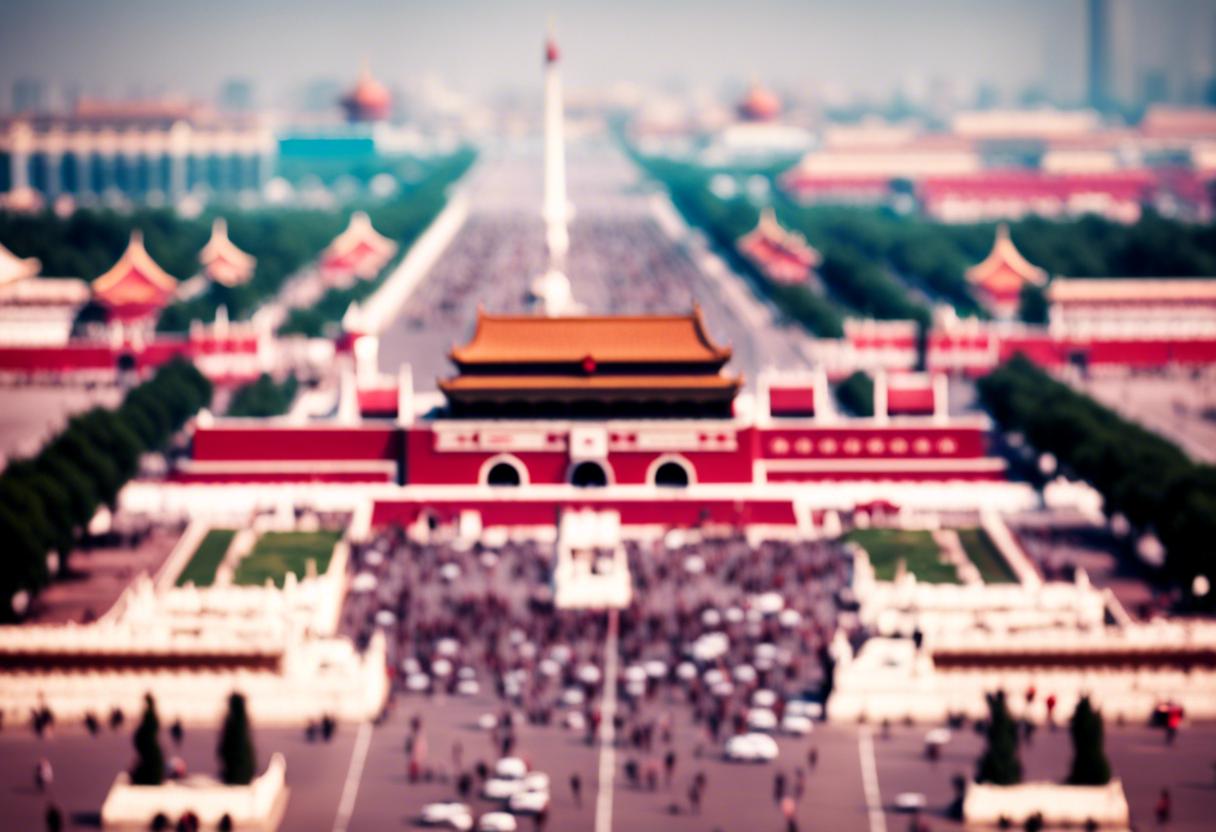Flags from multiple African nations fluttered above Tiananmen Square on Thursday, as more than 50 African leaders gathered within the Great Hall of the People to meet with China’s president, Xi Jinping. This particularly large international gathering in Beijing was part of the triennial Forum on China-Africa Co-operation, which has been conducted since 2000.
Xi has committed to providing over $50 billion in financial aid to Africa over the next three years, alongside a commitment to facilitate the creation of at least a million jobs within the African continent through increased cooperation in various sectors such as industry, agriculture, trade and investment. Additionally, Xi pledged to offer zero-tariff access for all products from 33 of Africa’s least developed nations, thereby opening up China’s market to them.
The trend of China’s lending to Africa saw a significant increase last year after a considerable dip from its 2016 high. However, where earlier the focus was on large-scale infrastructure projects, now it has shifted to less costly yet highly efficient “small and beautiful” ventures. Xi also redefined the relationship between China and Africa, proposing a shared journey of modernisation and presenting it in contrast to the western methods that have often caused suffering in developing nations.
“Modernisation is a fundamental right of all nations. But the western stance towards it has burdened developing countries with tremendous hardships. Post the Second World War, Third World countries, for instance, China and African nations, have successfully achieved independence and growth, making efforts to rectify the historical wrongs of the modernisation process,” remarked Xi.
Furthering its pledge to support African countries, Beijing vowed to enhance its military assistance and train 6,000 military personnel alongside 1,000 law enforcement officers. It will also participate in joint military exercises.
Finally, a mutual agreement among China and the African countries expressed each will stand by the other regarding their primary issues and fundamental concerns. China supported Africa’s demand for reparations for the damages caused by slavery, colonialism and racial segregation.
Quoting the “One China Principle”, African leaders revealed their continuous commitment regarding China’s aspirations. This was, however, nuanced by South African President Cyril Ramaphosa, who articulated the “One China Policy” during his address at the People’s Great Hall. The leaders expressed their staunch support for China’s endeavours to achieve unification with Taiwan. They regarded issues related to Hong Kong, Xinjiang, and Tibet as China’s domestic matters, which should be respected internationally and in accordance with the principle of non-interference.
President Xi, in his statement, meticulously depicted the Africa-China partnership as an equal collaboration, despite the conspicuous bilateral trade imbalance. His announcement of 10 initiatives reflected many of Africa’s priorities encompassing health, agriculture, employment, and education.
Eric Olander, the co-founder of the China-Global South Project, stated that Africa’s concerns hardly find a place on the agenda in Washington. He added that Europe is currently overwhelmed by conflicts in Gaza and Russia, along with domestic political turbulence and migration issues. Thus, Africa’s priority for both US and Europe has substantially declined, mirroring the scenario around 2000 when Europe and the US lessened their engagement with Africa, just as China began to increase its influence.
Concerned by the effectiveness of China’s Belt and Road Initiative in advancing Beijing’s monetary and diplomatic pursuits across the Global South, the EU began the Global Gateway Initiative in 2021. This was designed to present the African nations with a more clear and enduring clearance of Chinese infrastructure financing. However, its impact has been minimal thus far.
Olander infers that the Belt and Road Initiative isn’t currently Xi’s primary foreign policy structure, and he has found approval for other global endeavours amongst countries keen to adopt a non-western approach to global governance. He indicated that the relationship between China and the Global South was never as conditional as depicted in the West. Consequently, the decrease in China’s lending towards Africa has not decreased its influence.
Olander completes his view stating that amidst the ongoing conflicts in Ukraine and Gaza, and the substantial competition with the US, coupled with the disillusionment most countries have with a western-centric system, China’s political reputation may have, if anything, possibly strengthened.
As it pertains to the widespread dissatisfaction concerning the status quo and the international system guided by the US and Europe, the perception of China challenging the US in certain aspects does strike a chord. This, however, does not indicate a preference for China as the leader of the Global South.
In fact, nations are leaning towards emulating the Vietnamese, Angolan, and Kenyan approaches in fostering robust relations with all factions. Right now, countries value strategic autonomy highly; it appears to be a stronger force than aligning with China, India, the US or Europe. Nations presently do not see any advantage in fully committing to one side over another.

